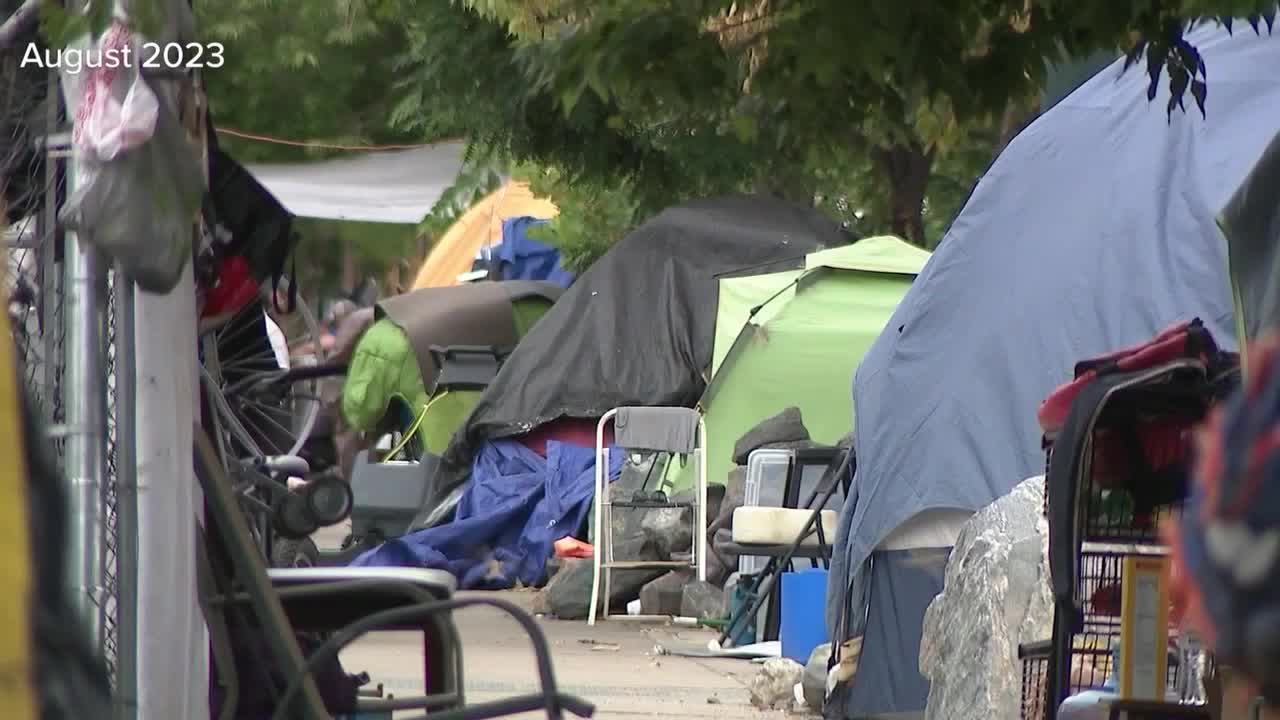DENVER — A third-party evaluation determined that Denver Mayor Mike Johnston's homelessness initiative reduced large homeless encampments in the city by 98%.
Johnston launched the All In Mile High initiative in 2024 to end unsheltered homelessness in Denver by the end of 2026. Denver's Department of Housing Stability (HOST) recently hired the research nonprofit, The Urban Institute, to evaluate the program's progress.
"When we're engaged by individual localities or organizations, in order to do evaluations, we maintain our independence as an evaluator through having confidentiality with people who are subjects of our research and not sharing any identifying information with the funders," Samantha Batko, a senior fellow at The Urban Institute, explained.
The Urban Institute found that All In Mile High was able to decrease the number of encampments of more than 20 people by 98%, while the number of encampments of 10-20 people decreased by 89%
- View a graph of the findings below
"Anytime you can reduce something by 98%, you're doing a pretty dang good job," said Cole Chandler, the senior advisor on homelessness for the Denver Mayor's Office. "We've really developed a national model that cities across the country can look to when they're looking to address unsheltered homelessness."
The city reports unsheltered homelessness has decreased 45% since 2023. One solution is microcommunities.

"They have a door that they can lock. They have air conditioner in the summer, heaters in the winter. They have a place where they can receive their mail," Chandler said. "Really, an opportunity to start rebuilding their lives."
These microcommunities can mean the world to people like Katherine Wright.
"I've been homeless and trying to get help on the streets for a long time now," she said of her life before moving into a microcommunity. "I have a safe place to go. It just gives me peace of mind."
According to The Urban Institute, there's more work to be done.
"This has been a large investment of resources from the community, and questions as to whether or not the shelter options that were selected, or as they were constructed, were the best use of those resources is a question that remains to be seen," Batko said.
The Urban Institute said it is working on an in-depth analysis of the program, which is expected by the end of the year. The nonprofit will continue to evaluate the program's effectiveness over the next two years.
"No one should have to call a tent their home," Chandler said. "We're going to keep working until everyone has a place to call home."






